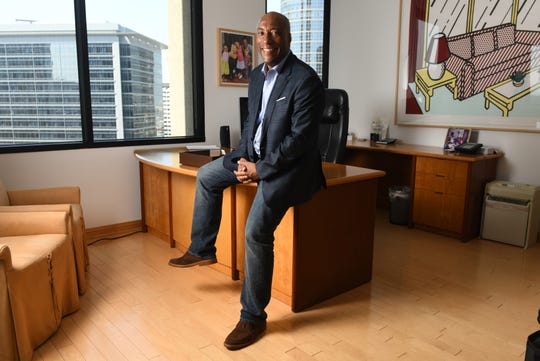
11 Jun Supreme Court to hear racial discrimination case against telecommunications giant Comcast
By Richard Wolf
WASHINGTON – The Supreme Court agreed Monday to decide if the nation’s largest cable TV company discriminated against an African-American media mogul.
The case was brought by Entertainment Studios Network, which bills itself as a “100% African-American owned” media company operating seven television channels. It is solely owned by Byron Allen, a comedian, television host and entrepreneur.
Allen sued telecommunications giants Comcast Corp. and Charter Communications, which serve tens of millions of customers in more than 40 states. He claims that since 2008, the two companies have refused to distribute his stations while launching scores of mostly white-owned networks.
As one example of alleged racism, the Comcast lawsuit claims that a company executive said, “We’re not trying to create any more Bob Johnsons” – a reference to the founder of Black Enterteinment Television, or BET.
Entertainment Studios lost in federal district court but won a reversal at the U.S. Court of Appeals for the Ninth Circuit. A key to the Comcast case before the Supreme Court is whether the network must show that race was the sole reason for the denial of a contract or just one factor. The Charter case likely is being held for the court’s ruling in the Comcast case.
Comcast had asked the justices to reverse the appeals court’s decision, claiming Entertainment Studios “alleged a vast conspiracy among video programming distributors, governmental agencies, and prominent civil-rights figures,” including the NAACP and Al Sharpton.
“Comcast has an outstanding record of supporting and fostering diverse programming, including programming from African-American owned channels, two more of which we launched earlier this year,” the company said Monday in a statement. “There has been no finding of discriminatory conduct by Comcast against this plaintiff because there has been none.”
Allen issued a statement Monday predicting victory at the Supreme Court and calling Comcast’s reference to diversity misleading.
“This case is not about African American-themed programming but is about African American ownership of networks,” he said. “Unfortunately, the networks Comcast refers to as ‘African American-owned’ are not wholly-owned by African Americans, and did not get any carriage until I stood up and spoke out about this discrimination and economic exclusion.”


